-
 Sizzling start lifts McIlroy to Masters lead
Sizzling start lifts McIlroy to Masters lead
-
Abhishek plunders 141 as Hyderabad pull off second-highest IPL chase

-
 Serbian president holds nationalist counter-rally
Serbian president holds nationalist counter-rally
-
Arsenal held by Brentford as faint title hopes fade

-
 Arnautovic pushes Inter Milan six points clear in Serie A
Arnautovic pushes Inter Milan six points clear in Serie A
-
Belligerent Abhishek hits 141 as Hyderabad chase down 246 in IPL

-
 England 'put foot on Ireland's throat' in Women's Six Nations
England 'put foot on Ireland's throat' in Women's Six Nations
-
England survive Ireland scare in Women's Six Nations

-
 McLaren's Piastri claims Bahrain pole as Verstappen struggles
McLaren's Piastri claims Bahrain pole as Verstappen struggles
-
Serbia's Vucic holds rally for 'love of Serbia'

-
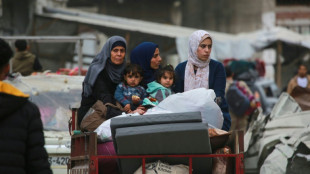 Israel expanding Gaza offensive, seizes key corridor
Israel expanding Gaza offensive, seizes key corridor
-
Monaco beat faltering Marseille to take second place in Ligue 1

-
 'Slow travel' start-up launches cross-Channel crossings by sail
'Slow travel' start-up launches cross-Channel crossings by sail
-
UK passes emergency law to save British Steel
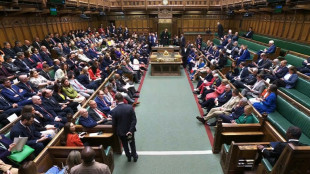
-
 Alcaraz to face Italy's Musetti in Monte Carlo final
Alcaraz to face Italy's Musetti in Monte Carlo final
-
Newcastle boss Howe admitted to hospital

-
 US exempts tech imports in tariff step back
US exempts tech imports in tariff step back
-
US in hurry for nuclear deal, Iran says after high-stakes talks

-
 Masters winner to get $4.2 mn from $21 mn purse
Masters winner to get $4.2 mn from $21 mn purse
-
De Bruyne leads Man City comeback, Forest beaten by Everton

-
 Record-breaker Penaud fires Bordeaux-Begles into Champions Cup semis
Record-breaker Penaud fires Bordeaux-Begles into Champions Cup semis
-
Almeida claims Tour of the Basque Country with stage six triumph

-
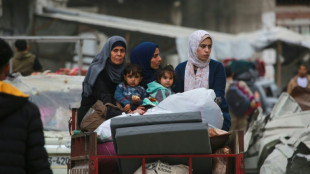 Israel seizes key Gaza corridor, expanding offensive
Israel seizes key Gaza corridor, expanding offensive
-
Toll hits 225, Dominican officials say all bodies returned to loved ones

-
 Leverkusen title hopes take hit in Union stalemate
Leverkusen title hopes take hit in Union stalemate
-
Ferrand-Prevot wins sensational women's Paris-Roubaix on debut

-
 De Bruyne targets Champions League place before Man City farewell
De Bruyne targets Champions League place before Man City farewell
-
Rose leads stacked leaderboard heading into Masters third round

-
 Ferrand-Prevot wins sensational Paris-Roubaix women's debut
Ferrand-Prevot wins sensational Paris-Roubaix women's debut
-
US, Iran hold 'constructive' nuclear talks in Oman

-
 Bordeaux-Begles' Penaud breaks Champions Cup single season try record
Bordeaux-Begles' Penaud breaks Champions Cup single season try record
-
Pogacar 'here to go for it' in Paris-Roubaix debut

-
 Real Madrid need to plug defensive leaks: Ancelotti
Real Madrid need to plug defensive leaks: Ancelotti
-
Markram, Pooran lead Lucknow to IPL win over Gujarat

-
 First US-Iran nuclear talks in years take place in Oman
First US-Iran nuclear talks in years take place in Oman
-
Boulard double takes Women's Six Nations contenders France past Wales

-
 Piastri leads McLaren 1-2 in Bahrain final practice
Piastri leads McLaren 1-2 in Bahrain final practice
-
Alcaraz beats Davidovich Fokina to reach first Monte Carlo final

-
 De Bruyne inspires Man City revival to crush Palace
De Bruyne inspires Man City revival to crush Palace
-
Israel seizes key Gaza corridor, to expand offensive
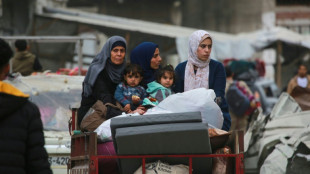
-
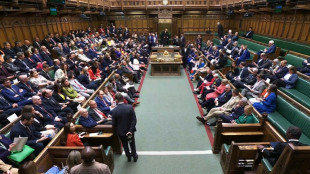 UK lawmakers hold emergency debate to save British Steel
UK lawmakers hold emergency debate to save British Steel
-
Warnings issued, flights cancelled as strong winds whip north China

-
 End of the line for Hong Kong's Democratic Party
End of the line for Hong Kong's Democratic Party
-
Israel takes control of key Gaza corridor, to expand offensive
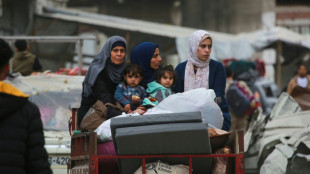
-
 First US-Iran nuclear talks in years start in Oman
First US-Iran nuclear talks in years start in Oman
-
Asian football chief fears 'chaos' if 2030 World Cup expands to 64 teams

-
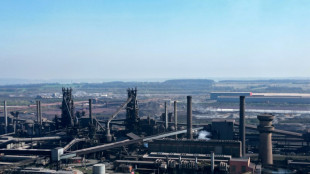 UK lawmakers begin emergency debate to save British Steel
UK lawmakers begin emergency debate to save British Steel
-
Accord reached 'in principle' over tackling future pandemics: negotiating body

-
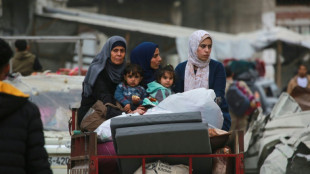 Hamas expects 'real progress' in Cairo talks to end Gaza war
Hamas expects 'real progress' in Cairo talks to end Gaza war
-
Lady Gaga brings mayhem to the desert on Coachella day one

Climate change: A farm in Rotterdam
An overview of the issue of climate change and its effects on agriculture?
Climate change is no longer just a future threat, but a present reality that is already having a significant impact on agriculture worldwide. Rising temperatures, changing precipitation patterns and an increase in extreme weather events pose immense challenges for farmers and threaten
The global average temperature has increased by about 1.1 degrees Celsius since pre-industrial times. This warming is leading to changes in the growing conditions for many crops. Some plant species are sensitive to higher temperatures, which can lead to reduced yields and quality losses. For example, grain filling can be affected in
Changing precipitation patterns and water scarcity
Climate change also affects precipitation patterns, leading to droughts in some regions and flooding in others. Water scarcity is becoming an increasingly pressing problem, especially in areas of intensive agricultural use. Without sufficient irrigation, plants suffer from drought stress, which inhibits growth and reduces yields. On the other hand, heavy rainfall and flooding
Increase in extreme weather events
More frequent and intense extreme weather events such as heat waves, storms and frost periods are having a significant impact on agricultural production. Such events can destroy entire harvests, damage infrastructure and have long-term effects on soil fertility. Farmers have to adapt to unpredictable weather conditions, which makes
Spread of pests and diseases
With rising temperatures and changing climate conditions, pests and plant diseases are also spreading into new areas. Insects, fungi and viruses that were previously limited by climatic conditions can now infest larger areas. This increases the demand for pesticides and poses additional challenges for organic farming.
Impacts on animal husbandry
Livestock farming is also affected by climate change. Heat stresses farm animals and can lead to reduced growth, lower milk production and increased mortality rates. In addition, climate change affects the availability of forage crops and water, which makes animal husbandry even more difficult.
Adapting cultivation practices: Crop rotation, conservation tillage and the use of cover crops can maintain soil fertility and increase resilience to extreme weather.
Breeding climate-resistant varieties: Developing plants that can better cope with heat, drought or flooding is crucial for future food security.
Efficient irrigation systems: Technologies such as drip irrigation reduce water consumption and help to use water more efficiently.
Early warning systems: Weather forecasts and warning systems can help farmers to be better prepared for extreme weather events.
Diversification: Diversifying crops and income sources helps farmers to better cushion risks.
Policy support and global cooperation
Tackling the effects of climate change on agriculture requires policy support and international cooperation. Investments in research and development, education, and infrastructure are necessary to support farmers in their adaptation efforts. Furthermore, it is important to reduce global emissions to mitigate further climate change.
Conclusion
Climate change poses a serious threat to agriculture and global food security. However, the effects can be mitigated through proactive adaptation measures, innovation and political support. It is crucial to act now to safeguard agriculture for future generations and ensure the sustainable nutrition of the world's population.




